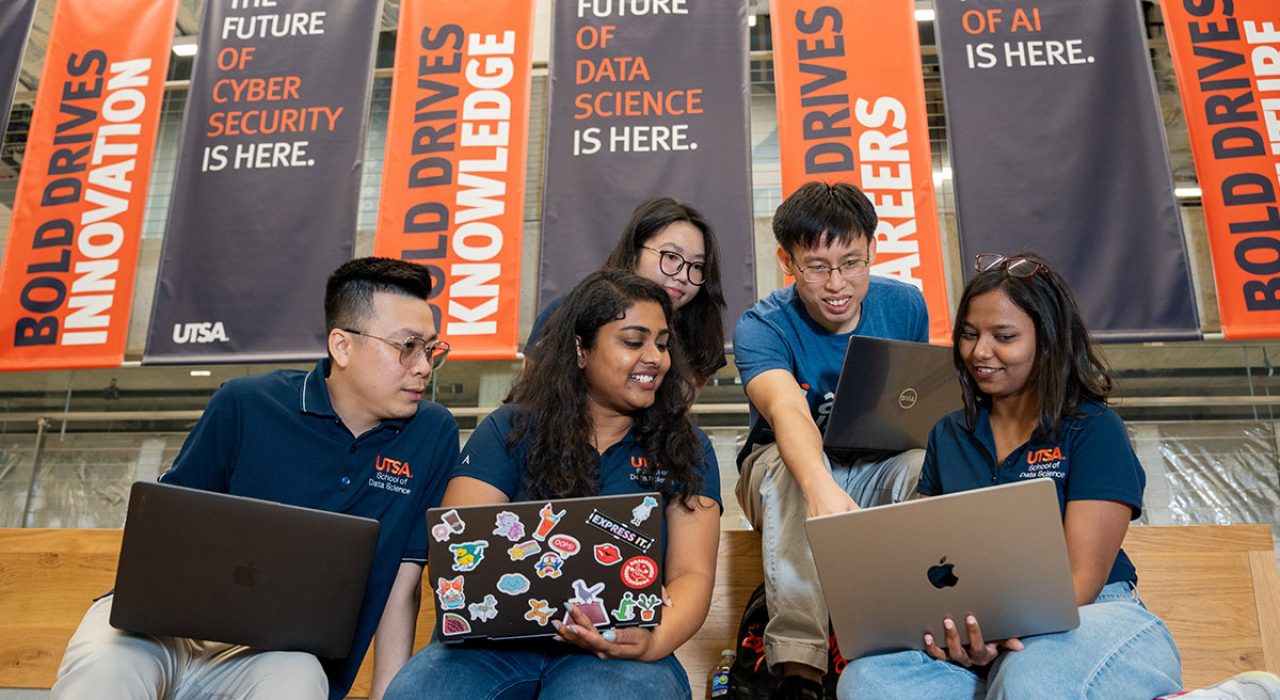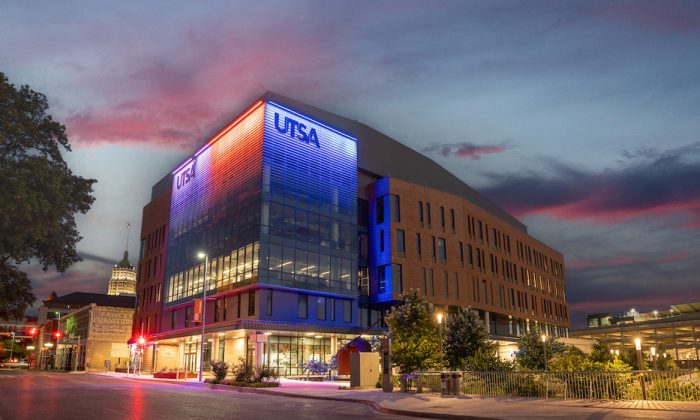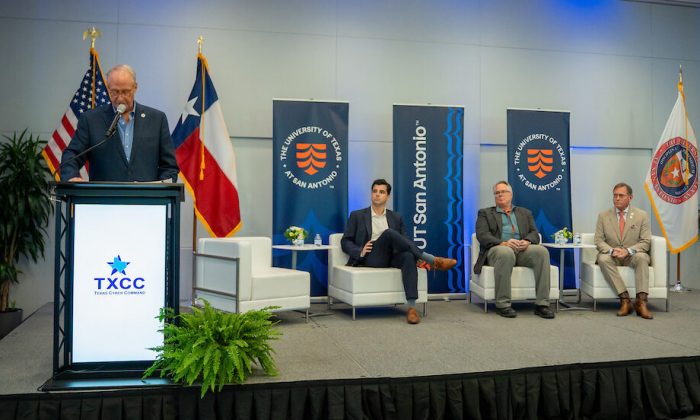The University of Texas at San Antonio launched the College of AI, Cyber and Computing on Sept. 1 bringing together academic programs in artificial intelligence, cybersecurity, computing and data science.
The new college positions UT San Antonio at the forefront of technological education and research and brings the number of academic colleges at UT San Antonio to nine.
Formation of the college began during a multi-phase process in January 2024 with the announcement of a university-wide initiative to elevate the university’s leadership in emerging technologies. Shaped by input across campus and community partners, the effort included a dedicated task force, working groups and a public design charrette.
In December 2024, the university announced the full structure of the College of AI, Cyber and Computing, detailing its academic departments, degree programs and alignment with research centers.
“The launch of the College of AI, Cyber and Computing reflects our university’s long-standing commitment to advancing knowledge and growing the talent pipeline in critical areas that will advance economic development, grow the professional workforce and positively impact our community,” said UT San Antonio President Taylor Eighmy.
“Our programs are designed to create synergies across departments and give students new ways to explore their interests.” — Fred Martin
Real-world opportunities
The college includes four departments — Computer Science, Computer Engineering, Information Systems and Cybersecurity and Statistics and Data Science — and will be based at the Downtown Campus, operating in San Pedro I and, when complete in spring 2026, San Pedro II.
Situated in San Antonio’s urban core, the college provides students and faculty proximity to industry, government and community partners, supporting connections to real-world opportunities across the city.
More than 5,000 students will be served by the college, pursuing degrees in disciplines that are experiencing rapid growth.
National projections show jobs in these career fields increasing more than 30% by 2031, with over 770,000 roles currently unfilled across the country. Since 2019, UT San Antonio has seen a 31% increase in enrollment in AI, cyber and computing programs.
“Our programs are designed to create synergies across departments and give students new ways to explore their interests,” said Fred Martin, professor of computer science and interim dean of the new college. “Being located downtown makes it easier for faculty to collaborate, which helps spark innovation and expand research.”
Center for Data Science
Martin added that students will benefit from flexibility in their academic journey. “Students have the flexibility to discover the program that best fits their goals and move between disciplines while staying on track to graduate in four years,” he said.
The College of AI, Cyber and Computing builds on the foundation set by the School of Data Science, which has now transitioned to the Center for Data Science. Faculty have secured major grants, launched industry partnerships and led innovations in areas like generative artificial intelligence, quantum computing and healthcare analytics.
A $2 million gift from USAA will support the college through scholarships, a student success center and expanded research infrastructure. The investment reflects a shared commitment to building a strong talent pipeline and supporting San Antonio’s long-term growth.
As preparations continue for the first academic year, university leadership emphasized the long-term vision behind its formation and the impact it will have on students and the region.
“The College of AI, Cyber and Computing is an important step forward for UT San Antonio,” said Heather Shipley, provost and senior executive vice president for academic affairs. “This launch ushers in a new era of innovation and collaboration, giving our students the skills and experiences to lead in one of the fastest-growing sectors of our economy and empowering them to shape the future of technology.”



